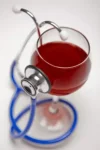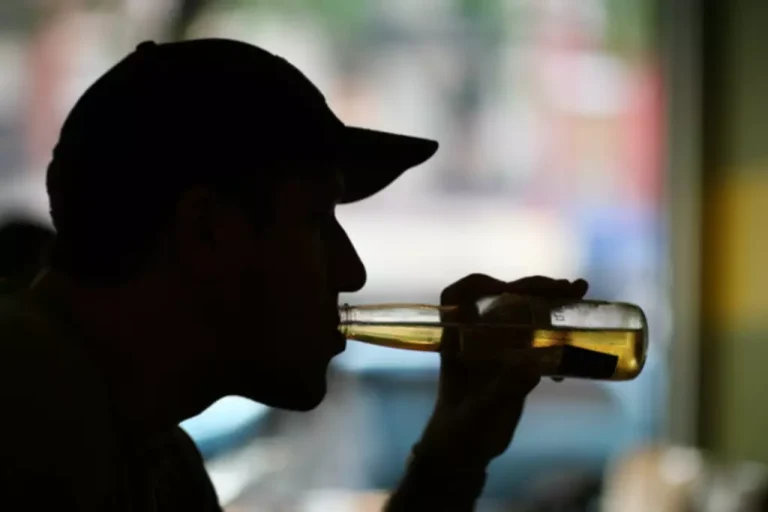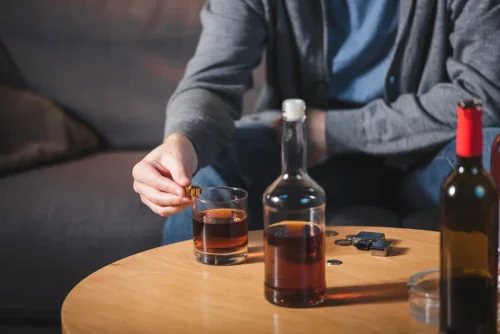
Many plants in the woods make phytoncides and other substances you breathe in that seem to bolster your immune function. In the summer, just 5-15 minutes of rays on your hands, face, and arms 2-3 times a week usually is enough. does alcohol weaken your immune system “We’re dealing with brain immune cells, which appear to respond to alcohol differently from blood immune cells,” says Hutchinson. 4Expression of TNF-α and IL-1β requires the actions of a protein called nuclear factor (NF)- B.
- As we said before, your immune system protects your body from unwelcome invaders and certain types of cancers.
- It is an immediate and rapid response that is activated by any pathogen it encounters (i.e., is nonspecific); in addition, it plays a key role in the activation of the second level of the immune response, termed the adaptive or acquired immunity.
- After eliminating pathogens by phagocytosis, the monocytes exhibit pathogen-derived proteins and other molecules (i.e., antigens) on their surfaces.
- The immune response, therefore, would be one of the main channels through which the gut-brain axis establishes communication [108].
- Several lines of evidence show that the number and function of B-cells are reduced by chronic alcohol.
Can You Drink When You’re Sick?
- T and B cell activation in the presence of retinoic acid results in the up-regulation of gut-homing molecules and generation of IgA-secreting B cells (Mora, Iwata et al. 2008).
- Steatotic liver disease develops in about 90% of people who drink more than 1.5 to 2 ounces of alcohol per day.
- However, studies showing the effect of alcohol on these microbiota derived metabolites are scarce.
- SCFAs also promote the activation of B cells and the development of Treg CD4+T cells—for example, increasing secretion of IL-10 with important anti-inflammatory effects.
The white blood cells, tissues and organs that make up our body’s immune system are designed to fight off infections, disease and toxins. Monocytes express Toll-like receptor (TLR) 4, the PRR that is often responsible for recognizing LPS on the surface of Gram-negative bacteria. After binding to LPS, monocytes are activated and mature into macrophages that travel to the site of infection to secrete important cytokines for the inflammatory response. https://ecosoberhouse.com/article/5-alcoholic-types-in-alcoholism/ Within the GI tract, alcohol exposure can also alter the number and abundance of microorganisms present within the microbiome, all of which play an important role in normal GI function. In addition to its adverse effects on GI functioning, the impact of alcohol on the GI microbiome can also alter the maturation and functions of the immune system. The adaptive immune system can be further subdivided into cell-mediated immunity and humoral immunity.
Thinking of Stopping Drinking? 9 Tips to Succeed
Consequently, deficiency in vitamin A results in the impairment of mucosal responses (Mora, Iwata et al. 2008). Vitamin D has long been known to have a critical role in calcium and phosphorous homeostasis. In addition, antigen presenting cells convert vitamin D to 1,25(OH)2VD3, a physiologically active form of vitamin D that is highly concentrated in lymphoid tissues (Mora, Iwata et al. 2008) where it can modulate function of T and B cells which express vitamin D receptors. Vitamin D deficiency results in reduced differentiation, phagocytosis and oxidative burst, by monocytes as well as defective bactericidal activity by keratinocytes (Fabri, Stenger et al. 2011, Djukic, Onken et al. 2014). Adaptive immune responses, on the other hand, are highly specific to new invaders.3 They involve T cells and B cells, which learn how to recognize antigens and not attack our own cells.4 These adaptive responses are helpful due to their long-lived memories and the ability to adapt to new types of infections. Several studies have also shown that the lungs are highly vulnerable to the effects of alcohol.

Mental health
Similarly, consumption of 10% (w/v) ethanol in tap water ad libitum for 2 days in mice resulted in decreased bone marrow DC generation, decreased expression of CD80 and CD86, impaired induction of T cell proliferation, and a decrease in IL-12 production (Lau, Abe et al. 2006). In addition, production of IL-10 in response to TLR2/6 stimulation was increased (Pruett, Zheng et al. 2004). This same treatment also inhibited the in vitro production of IL-6 and IL-12 by peritoneal macrophages harvested 2 hours following injection of LPS (Pruett, Fan et al. 2005). This phenomenon was not observed in a TLR4 mutant mouse, indicating that the acute phase response is mediated by TLR4 (Pruett and Pruett 2006).

Alcohol consumption increases intestinal permeability through the suppression of intestinal tight junction protein expression. This alteration allows the translocation of bacterial products to the systemic circulation. The gut-derived bacterial components together with LPS activate the immune cells localized in the systemic circulation or in target organs such as liver and brain. This causes the increase in pro-inflammatory components that can lead to alcohol liver disease or increased states of neuroinflammation. Not only does the immune system mediate alcohol-related injury and illness, but a growing body of literature also indicates that immune signaling in the brain may contribute to alcohol use disorder. The article by Crews, Sarkar, and colleagues presents evidence that alcohol results in neuroimmune activation.
- One of the most significant immediate effects of alcohol is that it affects the structure and integrity of the GI tract.
- “We’re dealing with brain immune cells, which appear to respond to alcohol differently from blood immune cells,” says Hutchinson.
- This causes the increase in pro-inflammatory components that can lead to alcohol liver disease or increased states of neuroinflammation.
- Corticosteroids are one example, as are TNF inhibitors for inflammation and chemotherapy for cancer.
- The alcohol also impairs the cells in your nervous system, making you feel lightheaded and adversely affecting your reaction time and co-ordination.
- But there’s plenty of research to back up the notion that alcohol does lead to weight gain in general.
Can You Mix Trazodone and Alcohol? Plus, 3 More FAQs About This Risky Combination
- In addition, viral infections induce the production of various IFNs and acute-phase proteins.
- Once they are at the site of infection, they swell in size and develop into the mature defensive cells—the macrophages—that enter the tissues.
- The immune system is how your body defends itself from infections — like harmful bacteria and viruses — and prevents you from getting sick.
- Thus, it appears that alcohol inhibits Th1 immune responses and may predispose the organism to Th2 responses and that this shift is at least partly mediated by suppression of IL-12.
- Rodent studies offer several advantages such as availability of transgenic models that can facilitate mechanistic studies.



